





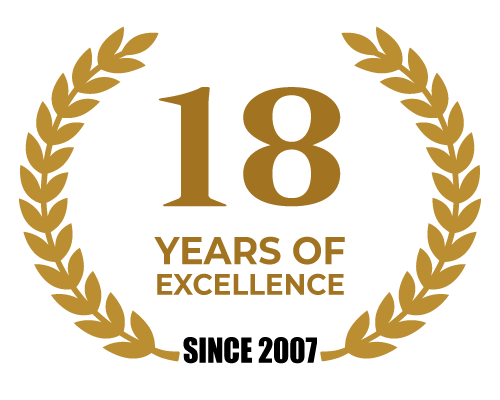
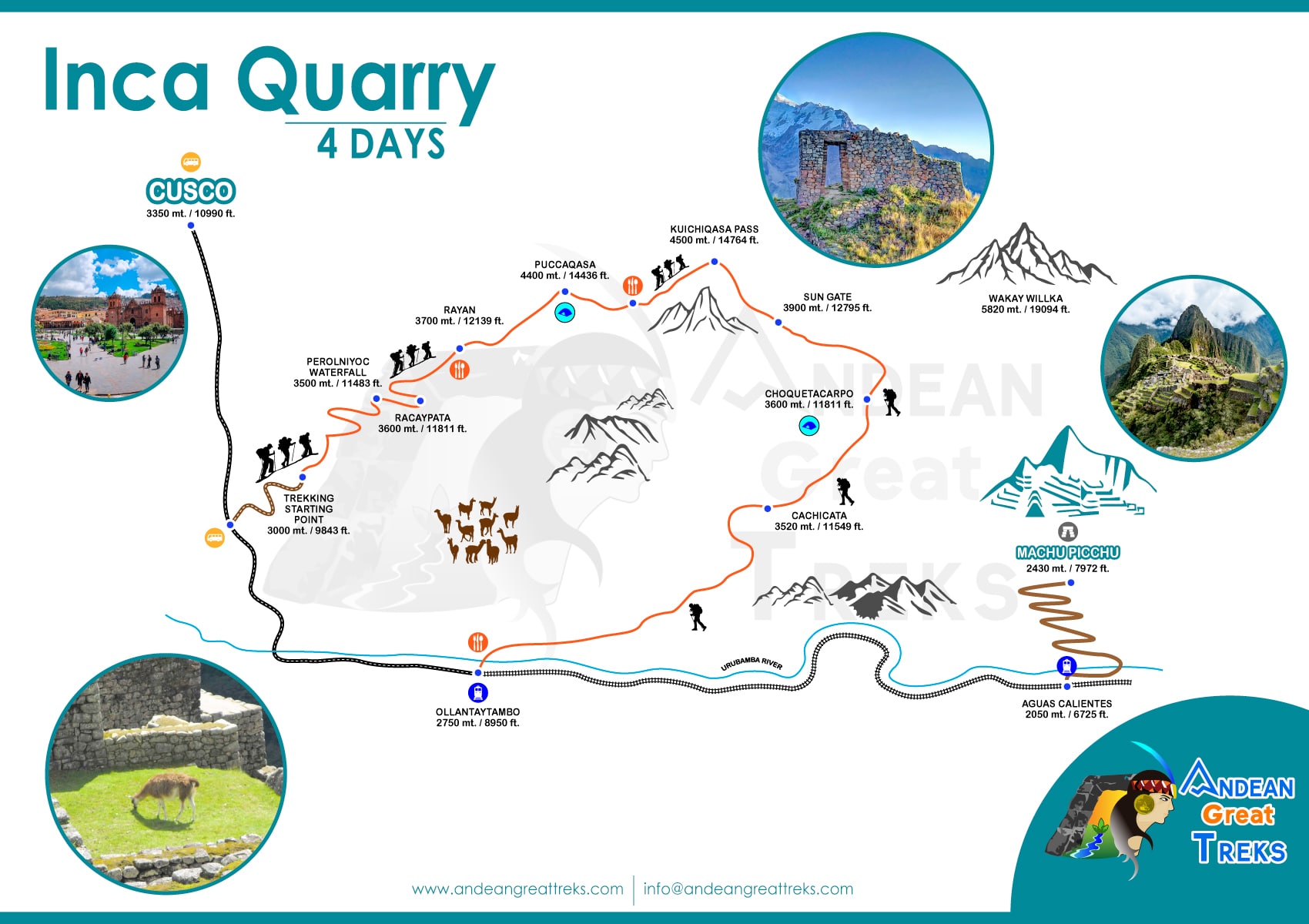 trip overview
included
Trip Highlights
activities
accommodations
itinerary
packing list
faq
essential trip information
best season to travel
price & availability
reviews
Reserve Online
trip overview
included
Trip Highlights
activities
accommodations
itinerary
packing list
faq
essential trip information
best season to travel
price & availability
reviews
Reserve Online
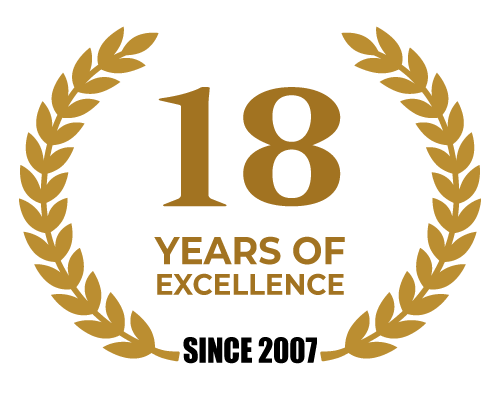 CREATING AUTHENTIC TOURS IN PERU
CREATING AUTHENTIC TOURS IN PERU

Inca Quarry Trail to Machu Picchu, is a historic route that offers travelers a unique experience in the heart of the Peruvian Andes. Less crowded than the famous Inca Trail, this trail allows you to explore the ancient quarries where the Incas extracted stone to build their imposing buildings. This circuit is one of the most memorable to discover the great landscape richness and culture of Peru, since in its circuit you will be able to learn more deeply about the mysticism and customs of the men of the Andes, and take a train trip to the sacred citadel of Machu Picchu.
Along the Inca Quarry Trail, visitors have the opportunity to observe impressive geological formations and natural landscapes that reflect the cultural and environmental richness of the region. The route not only provides a glimpse into Incan construction techniques, but also invites reflection on the connection between nature and past civilizations.
You can also find a new Puerta del Sol in all the Andes. Sun Gate or called Inti Punku, are structures built to honor the sun, usually at such an angle that they frame a distant mountain and welcome the first rays of the winter solstice. You can also see Inca mummies inside their tombs. Another great attraction of this route of the Inca quarry is the Perolniyoc waterfall, where you can take a dip, at the top you will appreciate the Inca ruins of Perolniyoc.
The journey along the Inca Quarry Trail is ideal for those seeking a more intimate and spiritual journey. In addition, being less traveled, it allows you to enjoy a more peaceful and contemplative environment. Without a doubt, this trail represents a fascinating alternative for those who wish to experience the Incan heritage at its best.
The Inca quarry route has a moderate to demanding level, the first two days, there will be an ascent to heights of more than 4,000 meters. And then you have a descent to the valley floor of Ollantaytambo (2,700 meters). The weather is varied, for example if you make the route in the winter months (May-August) it is quite cold (-5 ° C). In contrast in the valley floor and Machu Picchu it is not cold in any month of the year. Since in a short time you will have to make great ascents and descents, you are advised to be accustomed to making great walks, and prepare yourself as running in the morning or going to the gym. Be ready to withstand drastic changes in temperatures, such as intense sun, rain, snowfall. Be sure to arrive to Cusco days before where you can adapt to the height and thus avoid headaches or nausea.
Today, we’ll pick you up from your hotel in Cusco at 7:00 am. We’ll then head to the village of Huaracondo in our tourist transport. After a two-hour drive, we’ll arrive at the village of Soqma, where our trek will begin. There, our muleteers and the horses that will carry our luggage will be waiting for us. The weather is warm in the mornings, so hikers should carry a small backpack with the most essential items; the horses will carry the rest.
After the introduction by the tour guide, we begin the hike to the site of Perolniyoq. The views of the Pilcobamba Valley and Soqma are dreamlike, as traditional corn farming is still practiced here, using oxen.
At 11:00 am we will arrive at the base of the Perolniyoq waterfall, this site is surrounded by elderberry, eucalyptus, and queuña trees. After a rest in the shade, we begin the ascent to the archaeological site of Raqaypata, which was a sacred space for the Incas, used as an astronomical observatory and a temple for ancestral rituals. After explanations of Inca history and culture, we continue 45 minutes more to the site of Rayanpata, where we will spend the night in a comfortable trekking tent.
Accommodation: Comfortable camping tents
The highlights of the day:
Meals Included: Lunch, Dinner
After breakfast, we’ll leave camp. A slow, three-hour hike will take us to the highest pass of the trek, the Puka Kasa Pass (4,450 m/14,600 ft). As we ascend, the landscape changes, from the Queuña and Chachacomo forests to the Puna, where only mountain straw grows. Once we reach the top of this pass, you’ll enjoy views of the Veronica Mountains. For many, this is the most difficult section due to the altitude, but it’s the most spectacular day, as we’ll see many snow-capped mountains and the Sacred Valley. We’ll have the magical sensation of surviving one of the highest passes in this mountain range. After a short rest, we continue our hike along a rolling trail toward the second pass, Kuychi K’asa (4,457 m/14,619 ft). From this point, the hike descends for an hour along a rocky trail, then continues to the Inti Punku site, or the Sun Gate, where we’ll have spectacular views of Veronica Mountain and the Sacred Valley of the Incas. After lunch, we descend for an hour to our camp in Choquetacarpo, where we spend the night admiring the beautiful landscape.
Accommodation: Comfortable camping tents
The highlights of the day:
Meals Included: Breakfast, Lunch, Dinner
Today we will wake up at 7:00 am. After a nutritious breakfast, we will descend along the Inca Trail to the town of Ollantaytambo. During the walk, you will be able to observe several stone pieces made by the Incas, which were in the process of being transported. You can also see the famous truncated pyramid of Tamputoqo, which is represented in the corn fields of Ollantaytambo. It represents the face of the mythical creator god of the Incas, Tunupa.
After crossing the bridge over the Vilcanota River, we will climb the steps above the Inca terraces to head to the Ollantaytambo plaza, where we will have lunch. At 12:36 pm, the Inca Rail train departs, taking us to the town of Aguas Calientes. After 1 hour and 45 minutes, we arrive at the train station, where our transfer from the Hatun Inti Hotel will be waiting for us, where we will spend the night. At 7:00 pm, we will meet with our local guide with whom we will coordinate the visit to Machu Picchu.
Accommodation: Hatun Inti Classic
The highlights of the day:
Meals Included: Breakfast, Lunch, Dinner
This day will be one of the most memorable, as we will visit one of the most impressive Inca sites. To do so, you will take one of the buses from the town of Aguas Calientes to Machu Picchu. This trip takes 30 minutes. Upon arrival, you will meet your guide, with whom you must go through security by showing your Machu Picchu ticket. The guided tour of the Inca citadel lasts approximately two and a half hours. This depends on the itinerary you booked when purchasing your tour. After visiting all the major sites, you will leave the archaeological site and take the bus back to the town of Aguas Calientes. There, you can choose a restaurant of your choice for lunch, which is not included. At 2:30 p.m., the train is scheduled to return to Ollantaytambo, and then take the bus to Cusco, arriving at approximately 7:00 p.m.
The highlights of the day:
Meals Included: Breakfast
 warm jackets
warm jackets
 Hydration bladder
Hydration bladder
 wool socks
wool socks
 camera
camera
 scarf
scarf
 first aid kit
first aid kit
 hiking shoes
hiking shoes
 Dry bags
Dry bags
 Trekking Poles
Trekking Poles
 sun cream
sun cream
 Snack
Snack
 sun hat
sun hat
 bathing suite
bathing suite
 rain coat
rain coat
 Sandals
Sandals
 insect repellent
insect repellent
 Passport
Passport
 Down Jackets
Down Jackets
 toilet paper
toilet paper
 daypack
daypack
 Wool cap
Wool cap
 head lamp
head lamp
 gloves
gloves
 sun glasses
sun glasses
 cap
cap
 extra cash
extra cash
 Trekking pants
Trekking pants
There’s the Inca Trail, the classic route, which is justifiably famous and everything, but there’s also the Quarry Trail. It’s actually one of the most beautiful walks in South America, at least among those in the know, but it doesn’t get a fraction of the crowds on the Inca Trail.
Here we answer your most frequently asked questions about the Inca Quarry Trail to Machu Picchu. If you have any other questions, you can do it by our mail.
The term quarry says it all. It is a 3-day hike over the mountains of Ollantaytambo, intending to visit the sun gate or Inti punku, and of course the Inca quarries on the mountainside overlooking the Urubamba River. But apart from visiting the quarries, there is also a visit to a waterfall and other small Inca sites on the way.
It’s a four-day trek, about the same amount of time as the Inca Trail, but the last morning is just a transfer from Kachiqata to Aguas Calientes. You will only walk for about three days.
You’re still trekking through the best of the Andes, so expect soaring green peaks, granite boulders, isolated villages like Socma and archaeological sites like the famous Q’orimarca ruins. Many trekkers who’ve done both say The Quarry trail actually beats the Inca for pure scenery: you’ve got high passes like Puccaqasa (4,370m), views of the Nevado Veronica mountain and stunning valleys falling away on all sides.
If you want to beat most of the crowds (not that the Quarry Trail ever gets really busy), pick a shoulder season. May or October are good months. Peak time is the same as the Inca Trail, June, July and August. Weather here will be great, but you will be fighting for photo space at Machu Picchu. The difference is, you will have had the Andes to yourself for the last few days.
You’ll set off from Soqma, where you’ll meet the horsemen and guides that’ll be your best buddies for the next four days. Set off on the trail and you’ll soon hit the little town of Socma, then it’s on to the stunning Perolniyoc cascade lookout. A good spot for a selfie and a snack. After a rest, push on to the campsite, which sits about 3,700m above sea level.
The second day of the Quarry Trail is probably the toughest. You’ll climb to the pass of Puccagasa (4370m) for some of the best views in the Andes, then hike for about two hours to the highest point on the trek: the mammoth Kuychicassa pass (4450m). After that it’s downhill for a while (phew), two hours of easy walking down to a site the Incas called Inti Punku (which means the Sun Gate, although it’s not THE Sun Gate). You can see the Veronica mountain shooting into the sky from here. It’s magic. Camp out near Choquetacarpo, about 3,600m above sea level.
On the third day it’s mostly downhill . You’ll walk past Kachiqata quarry (hence the Quarry Trail). This is a rock quarry that the Incas never completed during the Spanish conquest. By midday you’ll be at Kachiqata town, where you’ll take a train to Aquas Calientes (with a dip in the hot springs on arrival). The next morning it’s a short bus ride and all the glory of Machu Picchu.
Anyone trekking for three solid days over 3,500m above sea level needs a reasonable level of fitness. Altitude sickness is a real risk, but we’ll try to acclimatize you with some time in Cusco before the trip. Most people complete the Quarry Trail without any problems. Drink lots of water as you go, pace yourself, wear polarized sunglasses and appropriate boots.
The climate in the Inca Quarry trail varies because the first two days we will be in high Andean areas where the weather is very cold. On the other hand, the other days, we will experience much warmer weather. You will notice two distinct weather:
Rainy Season:
This season is from November to March. The temperature drops to 0°C and reaches 19 °C during the first days of the hike. On the other hand, on the following days, the temperature drops to 10 °C and reaches 21 °C. This season is characterized by cloudy days and precipitation of 108 milliliters. Therefore, the roads are slippery and muddy making the roads challenging. However, with proper outerwear for the rain and good trekking shoes, you can make it.
Dry season:
This season is from April to October. The temperature drops to -4 °C and reaches 21 °C on the first two days of the hike. On the other hand, on the following days, the temperature drops to 0°C and reaches 26 °C since we will be in the eyebrow of the jungle where the weather is warmer.
During this season there is less presence of rain. Precipitation is 3 milliliters. There are more sunny days which make the trek a perfect one. In addition, the roads are less slippery, so you will be able to walk faster each day by day. However, be careful and bring proper outerwear for cold and sunny days.
Along the Inca Quarry trail, we will hike through different altitudes. This is because we will go from the high Andean area to the eyebrow of the jungle. Above all, the different altitudes will make it possible to have incredible views such as unique flora and fauna.
Altitude sickness is a group of symptoms that can strike if you walk or climb to a higher elevation, or altitude, too quickly. Any time you go above 2,500 meters (8,000 ft), you can be at risk for altitude sickness. The pressure of the air that surrounds you is called barometric pressure. When you go to higher altitudes, this pressure drops and there is less oxygen available.
You may have symptoms if you travel to a high elevation without giving your body time to adjust to less oxygen. Even if you’re physically fit, you can still experience altitude sickness. In addition, high altitude and lower air pressure can lead to fluid leaking from blood vessels.
Researchers don’t understand exactly why this happens. This leakage causes fluid to build up in your lungs and brain. Here you find a list of some Altitude Sickness symptoms:
Mild Symptoms:
The first symptoms you will have when arriving at a higher altitude can be avoided using natural remedies like drinking coca tea which is the most effective way to cope with mild symptoms. Another option is to take some prescribed pills to relieve the pain. It is recommendable to stay in a place at a lower altitude, and rest the first days. If the situation doesn’t get better, call a doctor. You can opt for the best option if you have the following symptoms:
Unlike the previous symptoms, the symptoms listed below are more aggressive. Ignoring moderate or severe symptoms can lead to a life-threatening situation. You can relieve the pain using tank oxygen. It is important to go immediately to a lower altitude and have medical assistance to prevent any deadly complication. In addition, it is recommendable to keep hydrated. Drink from 3 to 4 liters of water, avoid alcoholic drinks, and start a diet based on carbohydrates and sugars. Some of the severe symptoms are:
HOW TO PREVENT ALTITUDE SICKNESS?
To do the Inca Quarry Trail, you should be aware of your physical condition. Therefore, training in advance is the key to success in hiking. You should strengthen your muscles, and your hiking resistance since the route is not uniform and presents different levels of difficulty.
According to the opinion of some specialists, you should do the following things:
Breathing exercises:
To do the Inca Quarry trail tours is important to keep the pace of our steps with our breathing to avoid getting tired easily. Therefore, we recommend doing deep breathing exercises, diaphragmatic breathing, complete breathing and alternate nostril breathing.
Go Hiking:
We recommend going hiking gradually. You can start with 2 kilometers to 10 kilometers per day. Above all, hiking strengthens the muscles and improves your resistance. In addition, you can go mountain hiking which is a bit more challenging. Note that most of the time of the journey we will be at an altitude over 4000m / 13,123ft.
Stay Hydrated:
Staying hydrated during the hike is vital. Doing so, you will avoid loss of energy and headaches. Constant hydration will contribute to a better blood circulation towards the brain.
Adequate food:
A balanced and nutritious diet is very important when doing this hike. Therefore we recommend eating food rich in iron and vitamin B which help to improve blood flow. You should preferably eat green vegetables and fish.
NOTE: Before starting the Inca Quarry Trail, you should visit a physiotherapist to determine if you have any injury from the past.
The acclimatization process plays an important role when you decide to hike the Inca Quarry Trail. You should know that you need some days for your body to adjust to the change in pressure, in temperature, and food. Therefore, tourist agencies recommend arriving 1 or 2 days before you start the hike.
It is important to take advantage of these days visiting sites around the city of Cusco as long as they are not challenging. If you have altitude sickness we recommend drinking coca tea and resting for a few hours. In case the symptoms don’t disappear, don’t self-medicate, visit the doctor instead.
The Inca Quarry trail doesn’t have any restrictions since there are no standards that prohibited this trek. What is important is to be in good physical condition. However, it is not recommendable for children under 8 years old and elderly since it is challenging and very cold during the first 2 days of the trek.
Although the Inca Quarry Trail is appropriate for a general audience, health is an important factor to take into account. It is not recommended for people who have respiratory and heart problems. Great part of the hike will be done at an altitude over 3500m / 13,123ft. which will have an effect on your health since there is less oxygen available. Note that at the moment of booking you have to inform the agency if you have any health problems. This way they can assist you and share some useful tips. Remember that your health is very important!
Andean Great Treks, always cares about the comfort of our clients on the different trekking trails. For this, in the Inca Quarry Trail, we offer the service of portable toilets, and strictly complying with the biosecurity protocols.
There is no electricity in the Inca Quarry Trail. So it won’t be possible to charge your cell phone, or camera in the route. It will only be possible when you arrive to Ollantaytambo. Therefore, we recommend bringing extra batteries or a solar portable charger. Otherwise, you will miss the chance to take photographs along the hike.
The Inca Quarry Trail doesn’t have wi-fi in the campsites nor along the route. However, there are parts where you can make phone calls. Therefore, we recommend informing your relatives and friends that you won’t communicate with them for at least 3 days. This way you can avoid any misunderstanding and inconvenience to others. Keep in mind that the idea is to create a bond with nature and leave everything from our monotonous life aside.
The campsites where you will spend the nights are not pre-established. This is because there are different places where you can spend the night. It will depend on the agency that you choose to do the trek. If you decide to hike on your own, you can spend the night in the following places we recommend on the following list. These campsites have the best areas for camping and the most frequent ones are:
Although it is not mandatory to have travel insurance to do the Inca Quarry trail to Machu Picchu, we highly recommend getting one. This way you can prevent any inconvenience that can happen during your trip. It is also essential to have travel insurance to enter other countries in the world. Agencies don’t offer travel insurance. If you need one, you should know that the cost of travel insurance is not always the same. It depends on the type and the length of the insurance.
We recommend bringing trekking poles for the Inca Quarry trail to Machu Picchu and for any other trek, especially if you have any knee problems. Trekking poles help you keep the balance and provide two more points of support reducing the pain on the knees when going downhill. Bring trekking poles with rubber tips to avoid damage. They must be light, average weight of 250 to 350 grams per trekking pole, easy to adjust, and with a locking mechanism.
On the other hand, they must be made of aluminum or carbon fiber which are resistant materials. Most agencies don’t include the cost of the trekking poles on the price tour, this means you will have to rent them paying an additional cost. They usually cost USD 20.
If you are concerned about the walk, you have the option of hiring an additional horse. The cost is US $ 60.00. You can only ride the first two days of the promotion. In the last days, you will sometimes have the opportunity to unsubscribe and take a car or train for certain stages of the trek. In addition, you should keep in mind that the first day you will take a different route than those who choose to walk. You do not have to organize this in advance.
The briefing is very important because that is when you will meet your guide. At this meeting, your guide will provide you with important details about the hike. If you participate in the Inca Quarry Trail, you will receive a duffle bag for your personal belongings. During the briefing, you will also pay the balance of your walk. You will receive a map of our offices with your reservation information.
Yes. It’s very important!!! We recommend that you bring 300-400 Peruvian soles. You may not need this money, but in an emergency you should make sure you have enough money. If you have difficulties on the route, you can use the money to buy alternative means of transport such as: car, horse and train. If you’re on the 5-day hike, there are some additional activities along the way, including the hot springs.
Yes, we will give you clean water with every meal and in the morning when you wake up.
At meal times we will give you teas, coffees etc to drink. You’ll come across a mountain spring, fountain or small stream approximately every 1½ hours along the trail where you can fill up your water bottle. Take a bottle of at least 1½ liter capacity per person. Although the water looks it is always safer to use sterilizing tablets or a water filter. The sterilizing tablets can be bought in most pharmacies in Cusco. With these tablets you have to wait between 30 and 40 minutes before drinking. Bottled mineral water can also be taken from Cusco or bought at Ollantaytambo.
Having a good guide is an essential part of a good walking experience. For this reason, “Adean Great Treks” hires and works with some of the best guides in the business. Our guides have knowledge in the fields of history, archeology, ecology and are from the Cuzco region.
To continue working with our guides, we pay them a higher salary than most agencies and make sure they are treated well. They can use good quality sleeping bags, mats and food for free. The same goes for our porters and our riders.
One of our strengths is the food we provide on the Inca Quarry Trail to Machu Picchu, which is why our company has been working with high mountain cooks for more than 10 years. They are going to bring you the best gastronomy of Cusco and Peru. At breakfast there will be scrambled eggs, omelets, pancakes, coffee, milk, butter, etc. Lunches are very nutritious (quinoa chaufa, steak, chicken stew, sauteed tenderloin, stuffed avocado, etc). And dinner is designed according to the type of weather, for example the first night you will have a refreshing soup for the cold and altitude sickness. The last day we will have dinner at a restaurant in Aguas Calientes. If you have any food restrictions, do not worry, since our chefs are prepared for all types of food restrictions, such as vegetarians, vegans, or allergies to gluten and others. All foods are prepared with fresh and organic ingredients, produced by the farmers of the Sacred Valley of the Incas.
Yes, this route include the entrance to the citadel of Machu Picchu. Therefore, on this route the visit to Machu Picchu takes place on the last day for a guide of 1 hour and 45 minutes. During this time the main centers of the Inca Citadel are visited, once the guide is over you no longer have the option of re-entering the citadel. For this reason, you should ask the guide for some recommendation to be able to spend a longer time inside the Citadel of Machu Picchu.
The visit time in the citadel of Machu Picchu is an average of 1 hour and 45 minutes to 2 hours, this time is the maximum that is used to be able to make the main circuit that contains the most outstanding sites of the Historic Sanctuary.
Note: You should know that there is no free time to visit on your own after the guide, unless you buy one of the extra hiking tickets (Huayna Picchu or Machupicchu Mountain) so you can re-enter the attraction.
Huayna Picchu :
The hike to the summit is approximately 45 minutes, along narrow and steep Inca stairs. Once at the top, you get to see the Citadel of Machu Picchu and its surrounding hills and valleys. This is the famous peak in the background of every iconic Machu Picchu photo. Summiting Huayna Picchu is always a top item on most Machu Picchu visitor’s lists which means that you usually need reserve this mountain 6 months in advance. Only a certain amount of people are allowed to hike this mountain each day (currently 400). Along this trek you’ll see breathtaking views of the Machu Picchu ruins. The limited number of tickets is a restriction set forth by the ministry of culture in Cusco, not by Andean Path Trek. This is completely out of our hands unfortunately.Tickets for this mountain are non-transferable.
Machu Picchu Mountain:
The hike to this summit is approximately 1.5 hrs. Once at the top, you get a much higher vantage point so you have an amazing view of the Citadel of Machu Picchu and its surroundings. This hike is a great alternative to Huayna Picchu. It is ideal for those who don’t want the hassle of fighting for a ticket, or who were unable to get one. Technically, spaces for Machu Picchu Mountain are also limited to 400 per day, as well it’s use to sold We simply need to reserve a space when we buy your entrance tickets. This trek is great because it will also take you high up like Huayna Picchu, offering great views. This trek has an easier incline (also making it accessible for those who fear the heights of Huayna Picchu), but the path is much longer making it equally as challenging in it’s own way.
STEP 1
STEP 2
STEP 3
STEP 4
For Inca Quarry Trail, we recommended booking at less 1 or 2 months in advance. The government has strictly limited the number of people permitted on Machu Picchu (permits are issued to about 2500 per day). We therefore recommend that you try to make your reservation for Inca Quarry Trail to Machu Picchu as far in or as soon as you know the dates of your international flights.
Nov, Dec, Jan: the trek permits for some departure dates were sold out 3 months in advance. we therefore recommend making a reservation at least 5 months in advance, although I am sure there will still be trek permits available for some dates 3 or 4 months in advance. Departures around Christmas and New Year tend to sell out fast.
March, April, May and June: Many trek departure dates during these months have sold out as soon as the trek permits go on sale at the beginning of January so we would recommend making a booking before the beginning of December to allow us time to process your booking.
Our company will be able to refund a part of your reservation deposit, in case you cannot do the Inca Quarry trail circuit. But this request must be sent to the company’s mail, with a minimum of 15 days before starting your Trekking. Otherwise you could be charged some administrative costs.
A very important issue to give, is that if you paid for the entire tour, and for any reason you decide to cancel the tour less than 48 hours, this can only be done under certain conditions, by your travel agent, who will inform you of the expenses that should cover.
We recommend making your reservation in advance and we will guarantee your Spaces for this hike.
Each reservation needs 50% of deposit as first payment. The final balance will be paid in Cusco (On the Briefing Day).
About Payment you must choose where you would like to make the deposit:
By Pay Pal or Credit Card
First, we will send you an email to confirm your payment.
Two weeks before your tour date, we will contact you by email to request the final payment. We will also ask you where you will be staying in Cusco, to be able to pick you up on the day of your hike.
After we receive the final payment, we will send you an email confirming your tour date and informing you of important contact information for our tour agency, as well as some final tips to prepare for the trek.
Once we have purchased your tickets, with your security deposit, you can only change your start date if you pay an additional amount. This amount is usually around $50 USD. The reason for this is the tickets we purchase are non-refundable and non-transferable, so we are not allowed to simply change your tour date.
Unfortunately, the 5% charge is completely out of our hands. This fee does not go to us, but to PayPal and VISA. There is really no way around it.
It’s best to pack lightly for Inca Quarry Trail. Generally hikers leave the bulk of their belongings safely in storage at their Cusco hotel, and bring only their hiking pack for the trek. This list ensures that you have everything you need for a guided trek without overburdening yourself.
Mountain clothing
Head:
Thorax / Core:
Bottom:
Hands:
Personal Team
Hiking gear
Electronics
Toiletries
Others
Any bags that you don’t need to take on Inca Quarry Trail it can be left at your hotel in Cusco. Nearly all hotels have a luggage deposit and rarely charge for this service as long as you are returning to the hotel after the trek. You can also leave valuables in the hotel safe, but remember to bring your passport and some emergency money. Or you also can store at our office.
Support staff during the Inca Quarry Trail is as important as the guide. Among them we have:
Chef:
He is the person in charge of preparing the meals for 4 days of the hike. They were trained at Culinary Schools where they learned how to prepare delicious dishes that will surprise you. It is usually the guide who introduces the chef on the first day of the hike.
Muleteer:
He is the person in charge of guiding the horses that carry the equipment, and food supplies that will be used on the hike. They are people who live in the high Andean area of Cusco. Most of them are farmers. Therefore, hiring their service through a reliable agency contributes to generate a new source of income.
After hiking the Inca Quarry trail and getting well acquainted with the support staff and guide, you may wonder how much to tip them. You should keep in mind that it is not mandatory to tip the guide or support staff. However, if you feel that you have received a high-quality service, you are free to tip the staff. You need to take some cash with you to do so or you can say some words expressing how much you appreciate their help and motivate them to keep up with their hard work.
What most tourists who hike for more than 3 days are a goodbye ceremony. It is then when muleteers, chefs, and guides say goodbye and thank tourists for choosing to go on the Inca quarry trail tours. At this moment, you can leave the staff a tip for the service you have received.
The amount of money for the muleteer can be between 50 to 100 soles. In addition, the chef receives double (between 100 to 200). Finally, there is the guide who was always taking care of you. In this case, he receives your personal appreciation, but it has to be more than what you leave the chef since the guide is all the time with you.
Want an in-depth insight into this trip? Essential Trip Information provides everything you need to know about this adventure and more.
View Essential Trip InformationThe best time to visit Peru is during the dry season, between May and November, when the weather is dry and bright, with more frequent rainfall occurring between November and April.
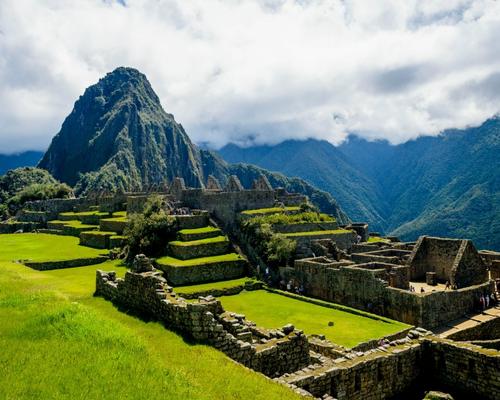 JANUARY
JANUARY
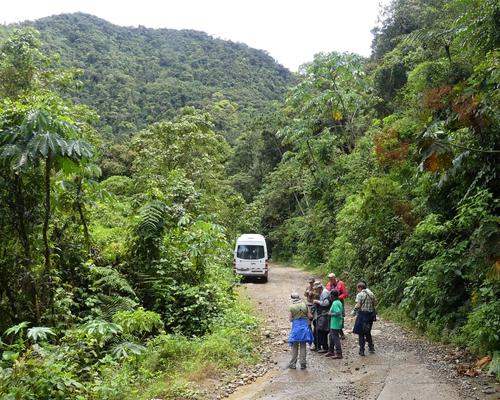 FEBUARY
FEBUARY
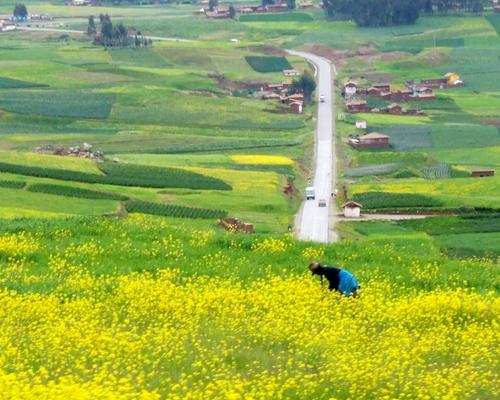 MARCH
MARCH
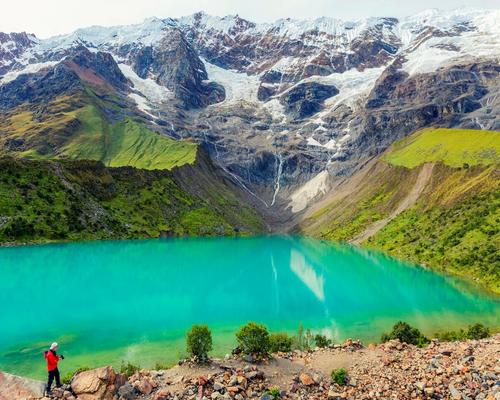 APRIL
APRIL
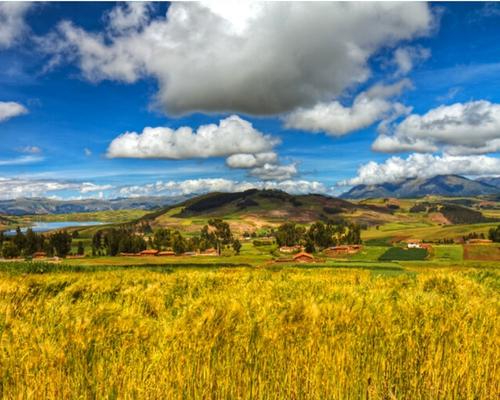 MAY
MAY
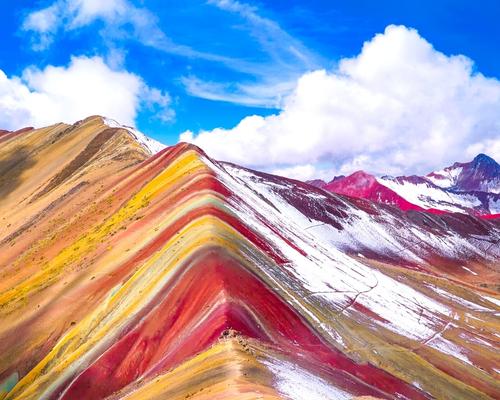 JUNE
JUNE
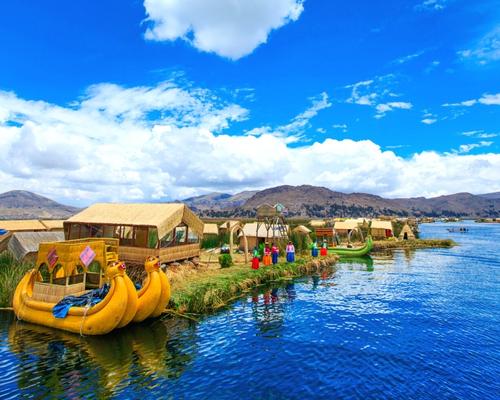 JULY
JULY
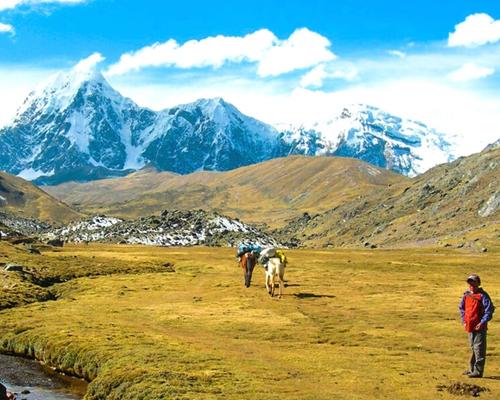 AUGUST
AUGUST
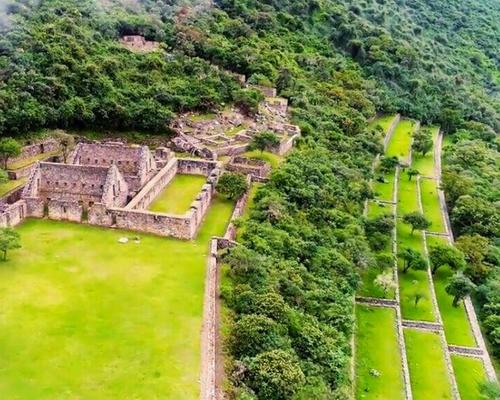 SEPTEMBER
SEPTEMBER
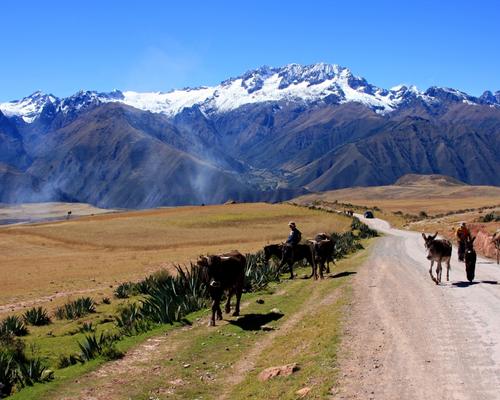 OCTOBER
OCTOBER
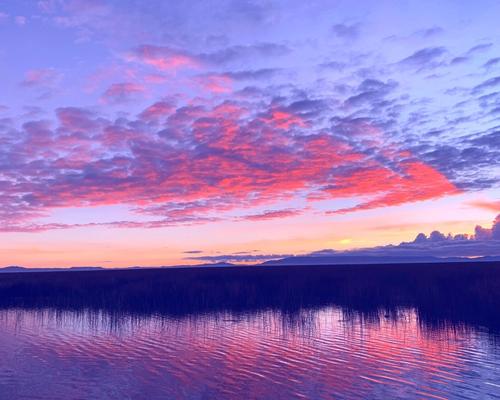 NOVEMBER
NOVEMBER
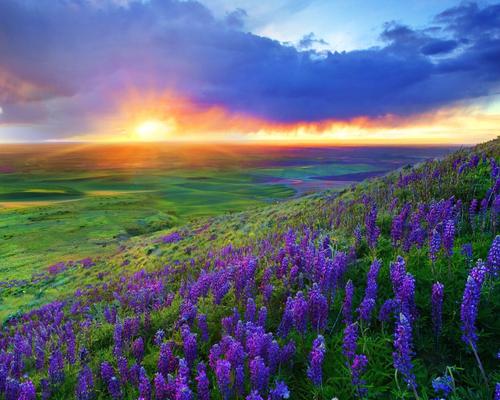 DECEMBER
DECEMBER
To book this tour, a minimum of $ 200 USD per person is required, the remaining balance will be paid upon arrival in Peru, at the Cusco office.
Any other additional information, please coordinate with your travel agent.
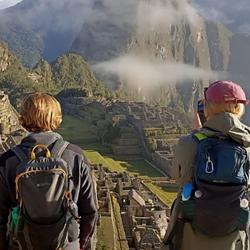
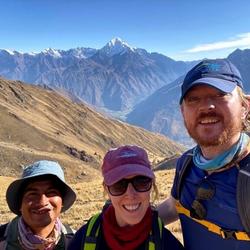
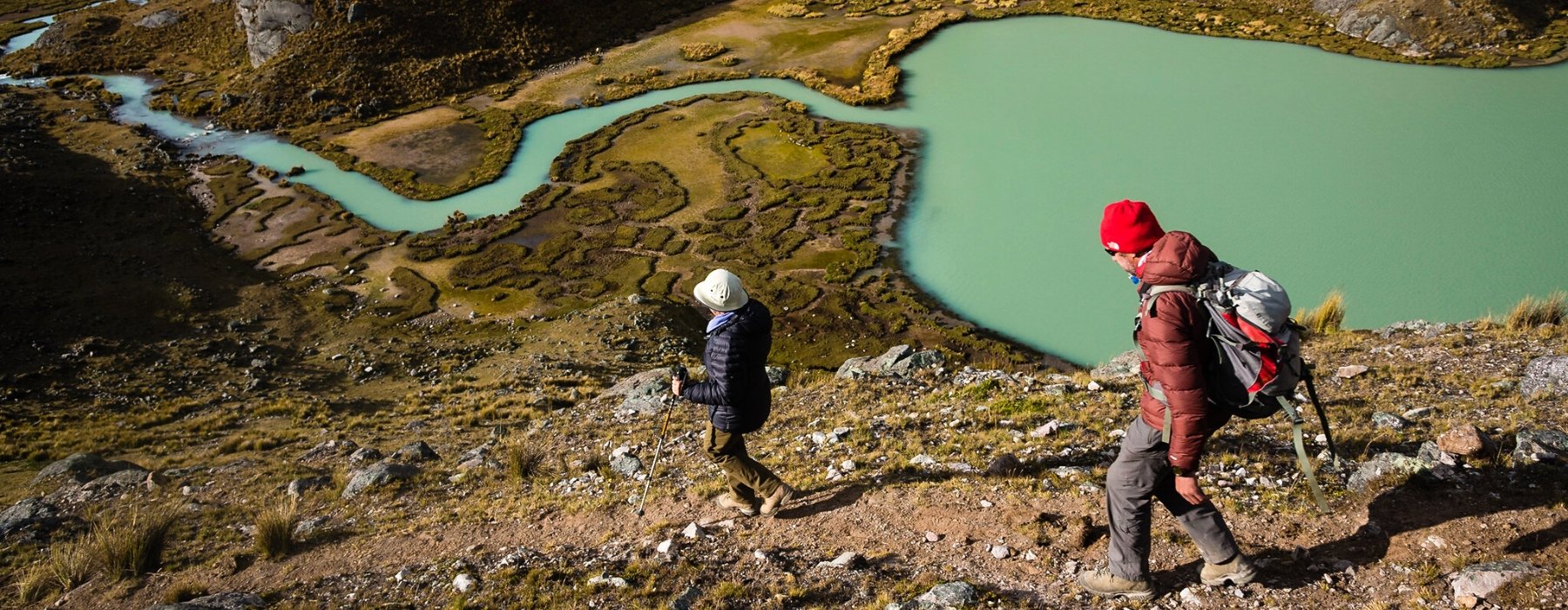
Nothing gets you closer to a country than walking through it, and we’ve got trips to suit walkers of all levels and interests.
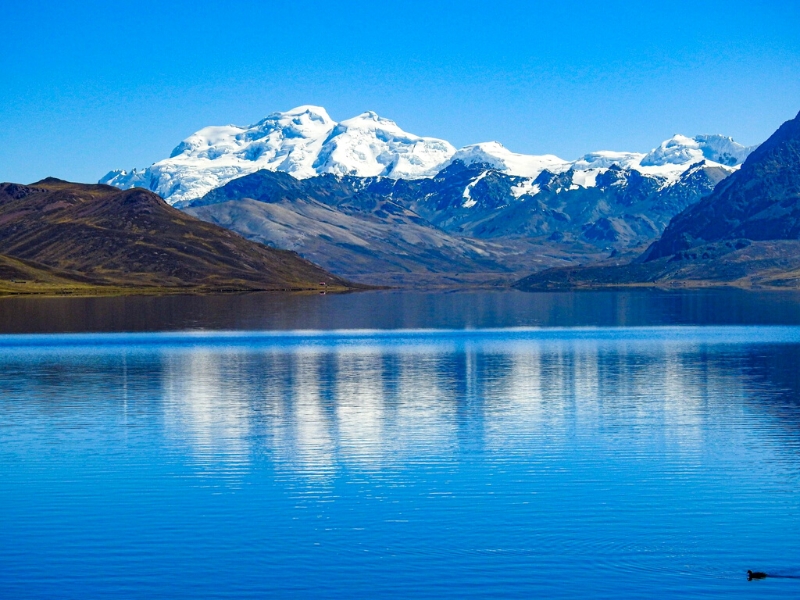
All our Walking trips are graded from ‘Easy’ through to ‘Challenging to Tough’. On our online trip itineraries you’ll find a chart showing the daily walk distances, timings and information on the route including the terrain, altitude. Generally, no specific training is needed but you might feel more comfortable if you’ve got out walking a few times in the lead-up to your trip.
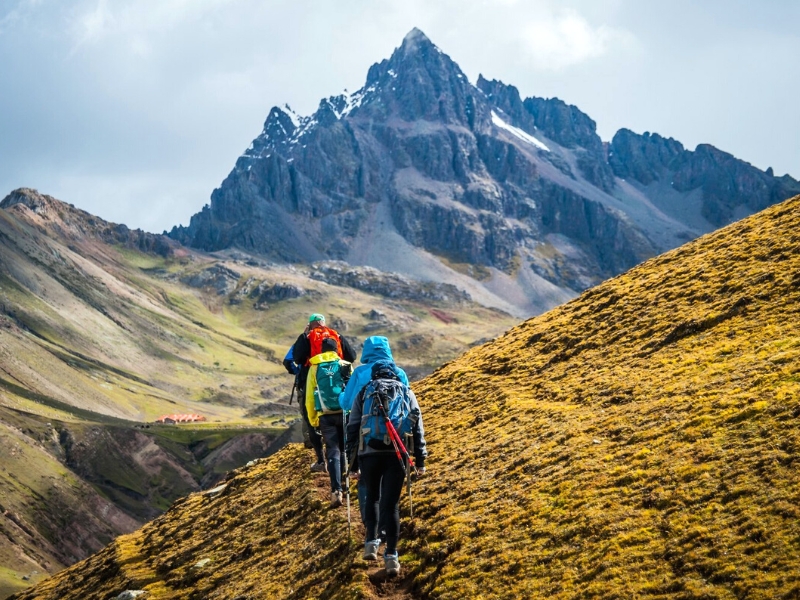
As with all our trips, every group is different but the ‘average’ group consists of roughly half couples and half solo travellers – all sharing a passion for exploring the world on foot. You’ll always have someone to keep you company along the route, but you don’t always have to walk together. Wherever possible your Andean Great Treks leader will allow everyone to walk at their own pace, regrouping regularly along the route.
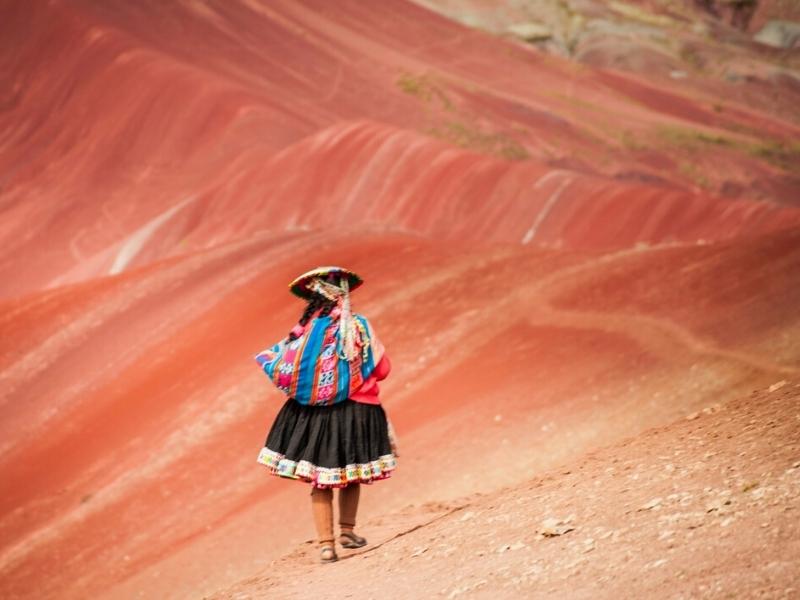
Mostly of our hikes in the mountains in Peru and Cusco like the classic Inca Trail to Machu Picchu, Ausangate Trek, Lares Trek, Ancascocha Trek, Salkantay Trek , involves an average of walking hours of 7-8 hours per day, this timing includes stops for taking photos, lunch, breaks for recovery the energy, and the most important we adapt to your walking pace. This relaxed style of trip involves to know all the attractions in greater depth.
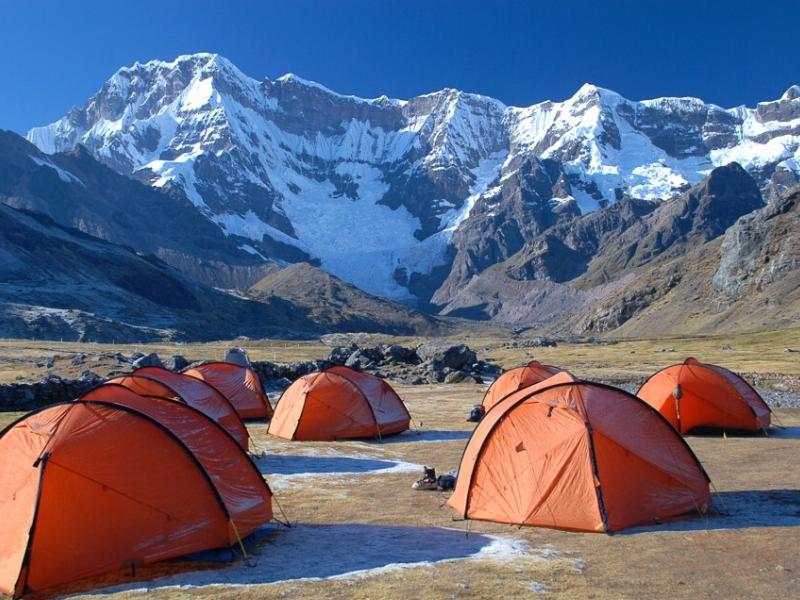
On nearly all our Walking trips, porters or mules will carry all the camping equimpent, so your main luggage will be transported for you. We recommend walk with a light rucksack, you will carry water, snacks, a camera, a small first aid kit and any extra clothing or sun protection. On more remote or challenging treks, additional guides are there to assist the leader tour guide and provide support to the group.
The acclimatization period is very important for our travelers to enjoy the experience. We suggest a minimum of 3 or 4 days of the previous stay in Cusco city, the Sacred Valley of the Incas or Machu Picchu. We recommend you check the acclimation programs we have prepared for you on our website.
The average height of our camps in the trekking circuits is 3,500 masl. In fact, one of the circuits where you sleep at the highest altitude is the Ausangate Trek, where you will have days to set up the tents at a height of 4,300 meters. Remember that Peru has snowy peaks that reach up to 6,700 masl.
From 3,000 meters above sea level, the symptoms of “altitude sickness” vary according to each person, and may even not occur. However, among the most common are a headache, dizziness, nausea, loss of appetite and insomnia. Therefore, upon arriving in the city of Cusco, located at 3,400 meters above sea level, we recommend our travelers to take a good rest, drink plenty of water, eat light meals and take slower walking. Also, it is necessary to avoid alcoholic beverages and cigarettes. The symptoms can be alleviated with high mountain medicines such as DIAMOX or similar products, but we suggest you consult with your doctor before the trip.
While on the trail, hikers will need to carry a daypack (camera equipment, water bottle, extra layers, rain gear, and other accessories you might need on the trail.) Horses and llamas will carry your duffle bag to the next camping site.
The company makes the greatest efforts to provide a safe and unforgettable experience, for this reason, the trekking guides are constantly communicated with the central office through satellite phones, ensuring the welfare of each passenger. Our guides are trained in rescue techniques and first aid in emergency outdoor, these courses are developed annually and have the standards of the wilderness first respond. At all times we have oxygen and first aid equipment. In case of any eventuality a medical director will answer our questions 24 hours a day. In addition to the animals who carry the luggage we have horses to help walkers tired or eager to ride. We recommend getting a travel insurance.
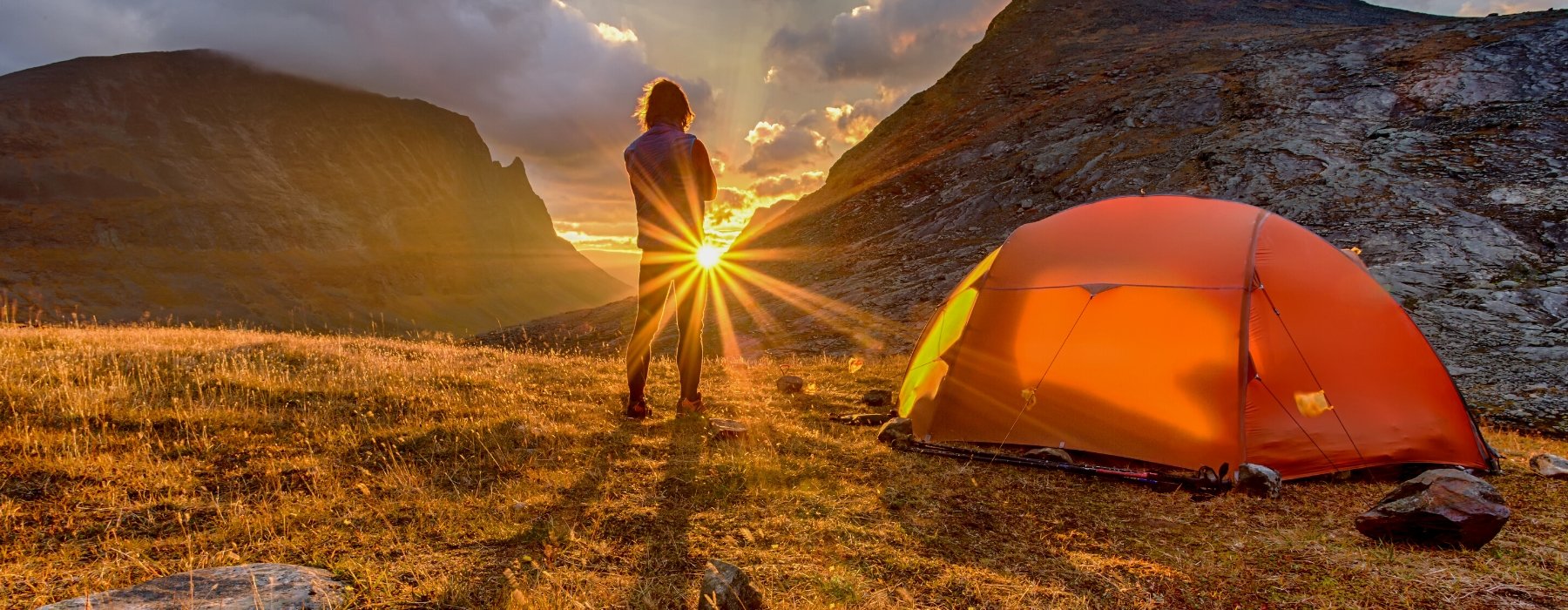
Every Andean Great Treks holiday has been thoughtfully planned and crafted by our specialists. They draw on their own extensive travel experience and the guidance and expertise of our local partners to create superb holidays. Our specialists are committed to making every aspect smooth and enjoyable; they genuinely want to ensure that the holidays they create leave you with wonderful lasting memories.
Every Andean Great Treks traveller is accompanied by an experienced tour guide, you will be immersed in Historic cities, ancient ruins and unfamiliar landscapes are all brought to life by our carefully selected local guides. They want to share their expertise and help you make your own discoveries too; their sole mission is to ensure you enjoy every moment.
Giving you the freedom to make your holiday even more memorable. We know how much our customers look forward to their holiday and we pride ourselves on the choice and flexibility that we offer to enhance every aspect of your experience. Whether it’s getting to the airport, upgrading your room or booking an additional excursion, we can help.
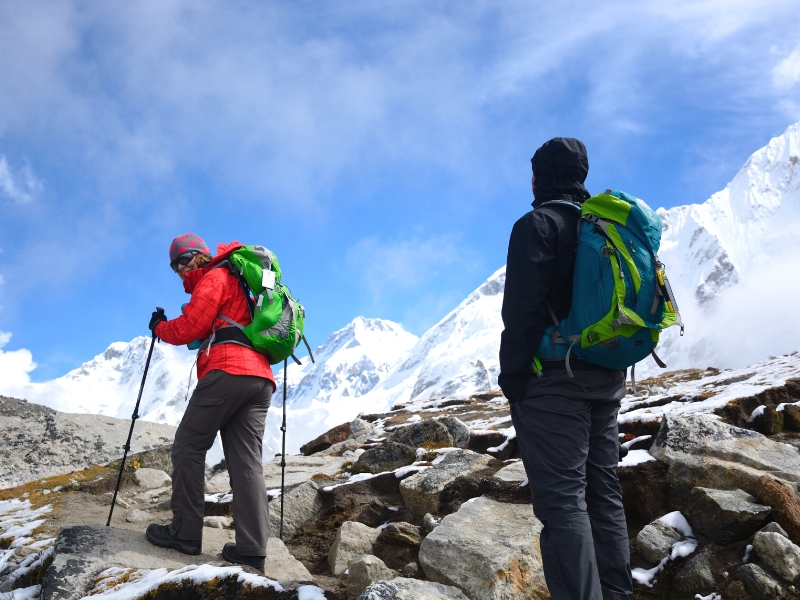
Our guides are the stars of the show; it is their unrivalled knowledge, passion and expertise that will transform your tour experience from good to truly extraordinary!
Because the have grown up in the area and know it like the back of their hand, so they can help you experience whichever aspects most interest you. They’re passionate about sharing their corner of the world with you, and as you explore together, they’ll open your eyes to the intricate details, provide background to enhance your understanding of what you’re seeing, and share stories that will bring everything to life.
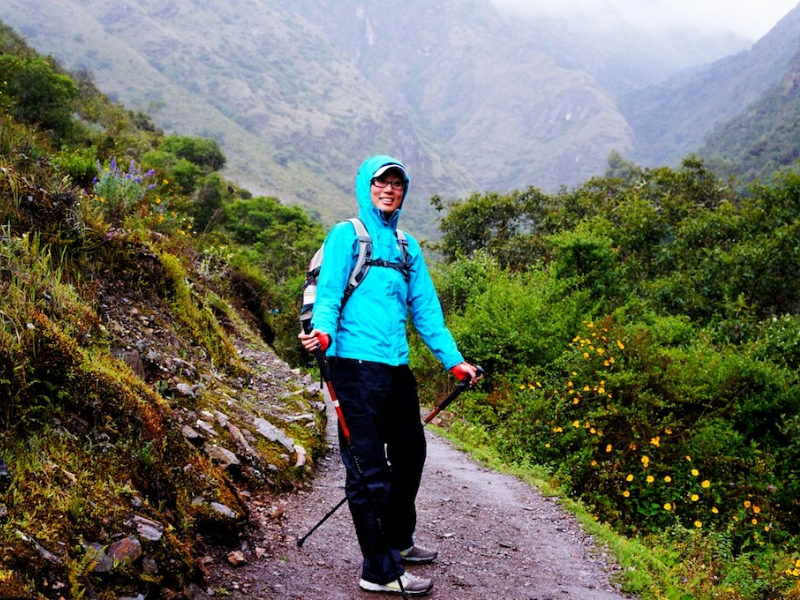
“Your inspiration for a trip can be a single word or a highly evolved outline, but it’s the conversations we have that help us understand the experience you’re looking for. Meanwhile, I’m looking back on the time I spent at the destination.
‘The great thing about working with a specialist at Andean Great Treks is how they take your complete jumble of ideas and turn them into something absolutely spectacular.’
As you begin to share your ideas with your specialist, it will connect them immediately back to a time in their own travels. Conjuring a picture of the rest time they made that same discovery, reminding them how it felt.
Your specialist understands that, when the journey is right, it has the power to excite your emotions in the most profound ways after all, that was the effect on them.
They carry a treasure box of moments, captured over many journeys, into every suggestion they’ll share with you, as they ask you how you want to feel on your trip.
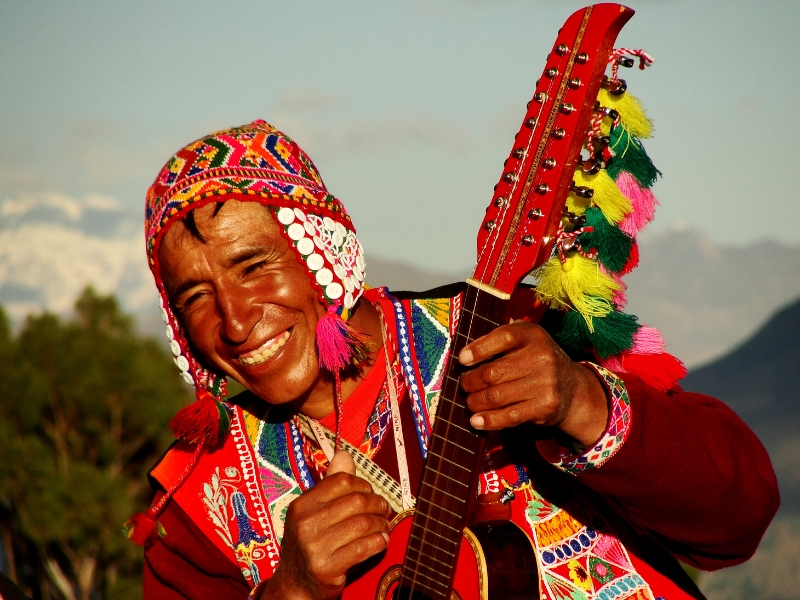
EXPERIENCES THAT CALL TO YOU
It’s what you do in a destination that helps bring it to life. It’s why we strive to choose experiences that help you connect to a place, absorbing a little of its complex character. Wherever your passions lie, we’ll recommend experiences that speak to you, and we’ll recommend the guide or local expert who’s most qualified to help you explore. Packing your holiday full of special experiences means some early starts and long days, but you can be sure that you’ll return home with many incredible memories! Read our Tours and check the Physical Ratings to see if the pace and activity levels are right for you.
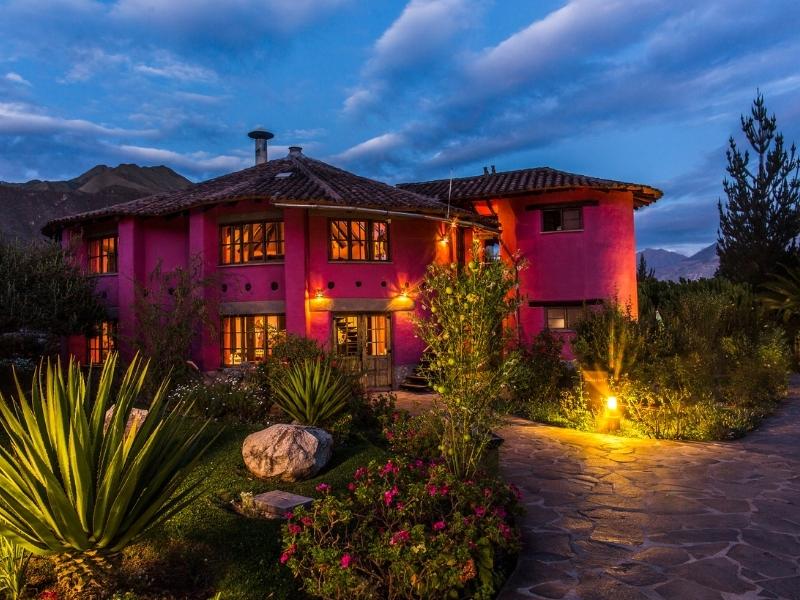
STAYS WITH DIFFERENCE
We know that where you stay is a cherished part of your travels. So, we go to great lengths to find places to stay that exceed expectations, or go above and beyond the ordinary, whether in their character, hospitality, or location. Over the years, we’ve discovered the very best properties, trying and testing them, so we can choose the right one for you. We’ve nourished long-standing relationships with these establishments and the people who founded them, and we’ve stayed there many times often, we’ll even know which rooms have the best views (and reserve them for you).
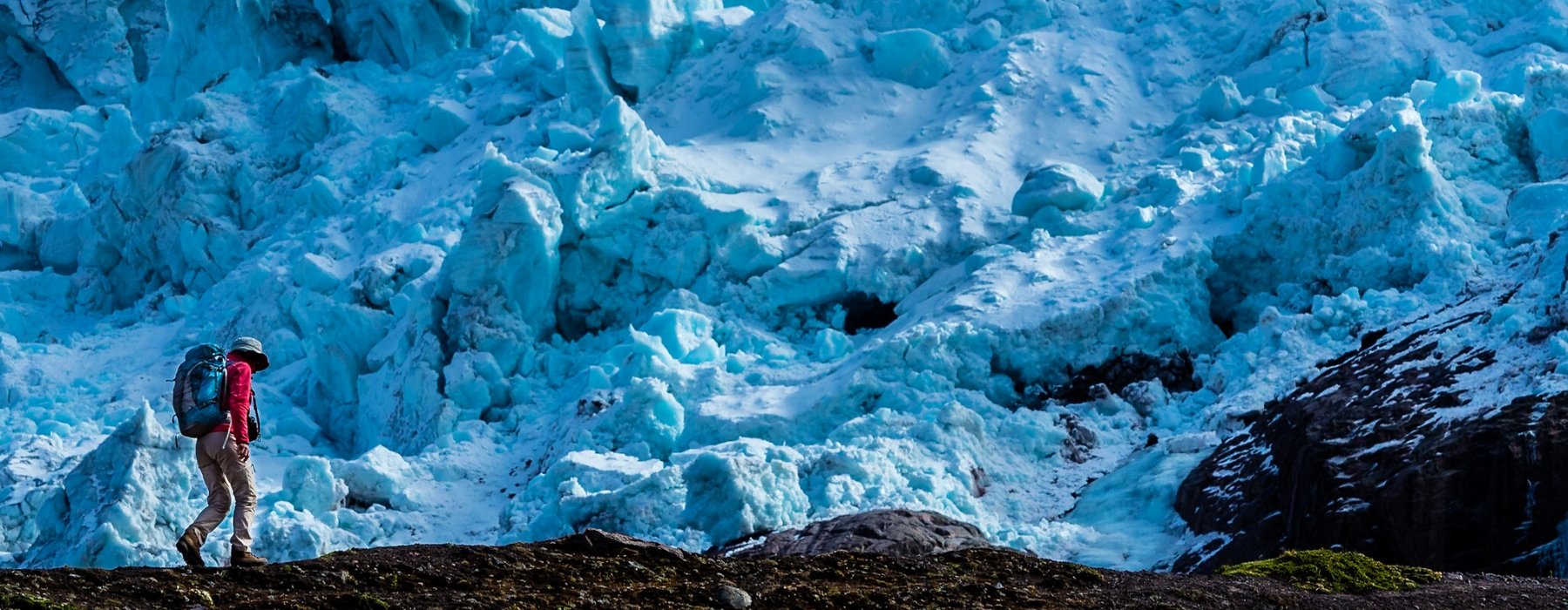
Our style of travel — authentic, thoughtful, and focused on building meaningful connections to the people and places you visit — is inherently respectful and considerate of the destinations we love. We design each aspect of your trip exactly as you want it, which includes its sustainability. That might mean choosing a train journey instead of a flight, staying at eco-friendly wildlife lodges, or opting for experiences that give back to the communities you’re visiting. The choice is yours.
Responsible travel has always been at the heart of what we do. First and foremost, because it gives you the best experience, but, also because it helps to preserve the communities and landscapes you visit. This isn’t new for us we collaborated with local communities and outside experts so we can grow to be better ambassadors.
The most authentic and interesting experiences often directly benefit the local people. We prefer to buy local products that are produced in the organic farms of the Sacred Valley, we also have alliances with local artisan organizations who provide us with souvenir items for our clients, your money directly benefits the local economy.
Our style of travel — authentic, thoughtful, and focused on building meaningful connections to the people and places you visit — is inherently respectful and considerate of the destinations we love. We design each aspect of your trip exactly as you want it, which includes its sustainability. That might mean choosing a train journey instead of a flight, staying at eco-friendly wildlife lodges, or opting for experiences that give back to the communities you’re visiting. The choice is yours.
Responsible travel has always been at the heart of what we do. First and foremost, because it gives you the best experience, but, also because it helps to preserve the communities and landscapes you visit. This isn’t new for us we collaborated with local communities and outside experts so we can grow to be better ambassadors.
The most authentic and interesting experiences often directly benefit the local people. We prefer to buy local products that are produced in the organic farms of the Sacred Valley, we also have alliances with local artisan organizations who provide us with souvenir items for our clients, your money directly benefits the local economy.
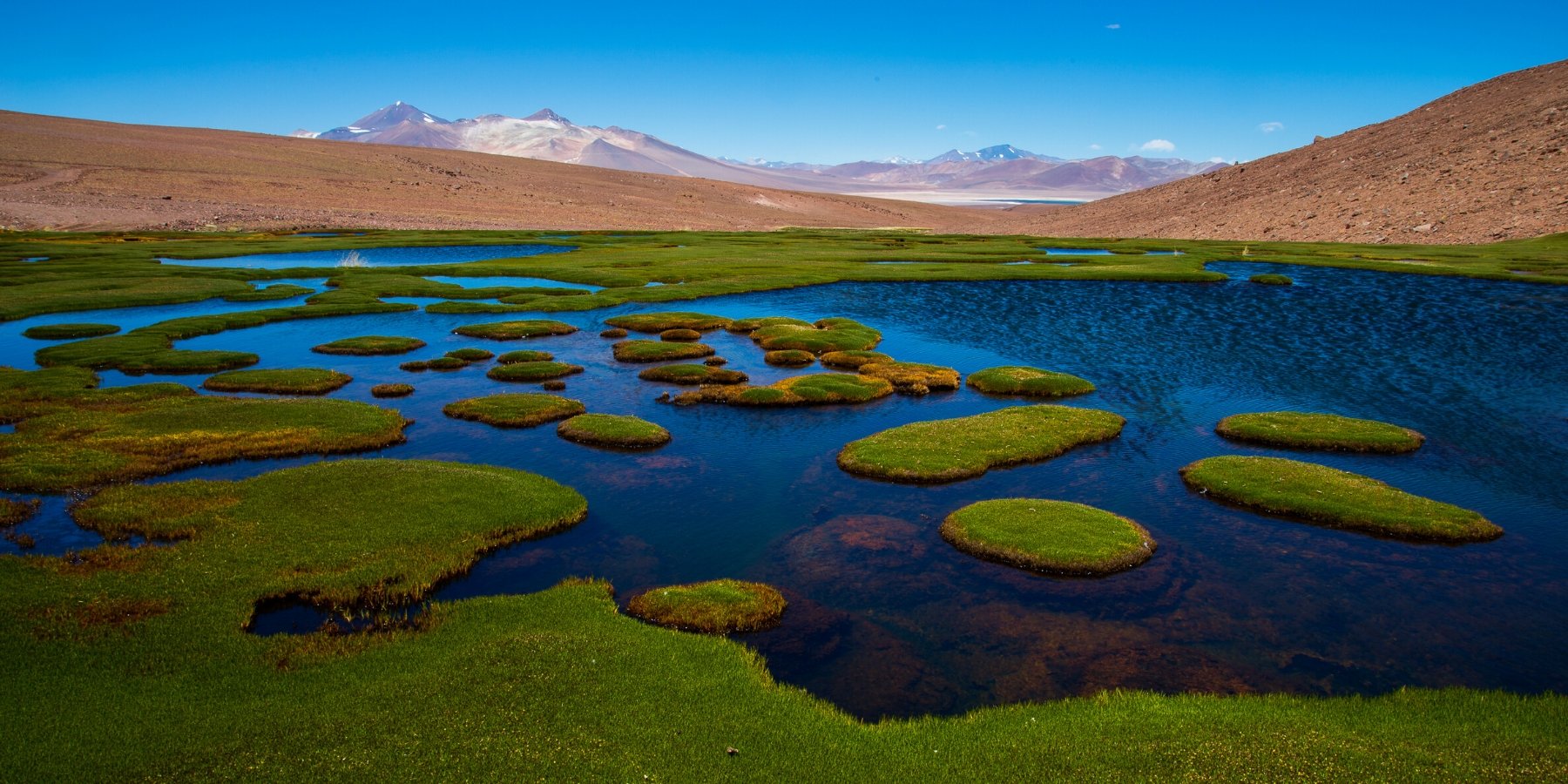
‘There’s a saying: we don’t inherit the Earth from our ancestors, we borrow it from our children. When we show you our country, this philosophy guides everything we do. It’s our responsibility to preserve the environment and wildlife, and support communities. That means using slower modes of transport, like cycling, employing local people, and working with communities who’ll benefit directly from your visit. This also gives you the best, most authentic impression of the places we want to share with you.
We prefer to buy local products in ecological bags, to avoid the use of plastic bags, likewise we teach the use of soaps and ecological products in each tour that we organize. We also work on reforestation projects with local communities who take care of landscape resources such as communal reserves, national parks.
‘There’s a saying: we don’t inherit the Earth from our ancestors, we borrow it from our children. When we show you our country, this philosophy guides everything we do. It’s our responsibility to preserve the environment and wildlife, and support communities. That means using slower modes of transport, like cycling, employing local people, and working with communities who’ll benefit directly from your visit. This also gives you the best, most authentic impression of the places we want to share with you.
We prefer to buy local products in ecological bags, to avoid the use of plastic bags, likewise we teach the use of soaps and ecological products in each tour that we organize. We also work on reforestation projects with local communities who take care of landscape resources such as communal reserves, national parks.
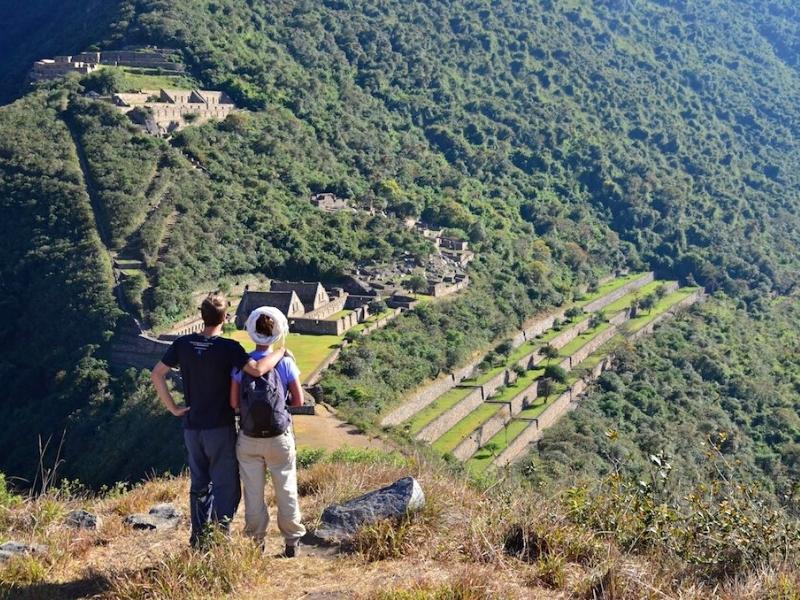
Trek to Choquequirao where you will find spectacular Inca ruins, Amazing scenery, breathtaking mountain views around every corner, incredible nature, the place practically just for you.
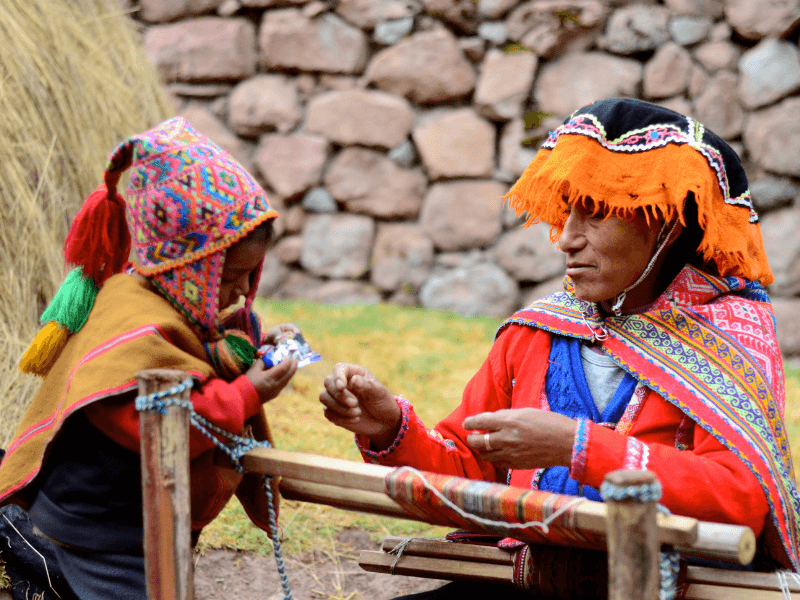
Embark on an incredible Cusco Andean exploration through Lares trek with a taste of the iconic Inca Trail to Machu Picchu, through the Sacred Valley of the Incas.
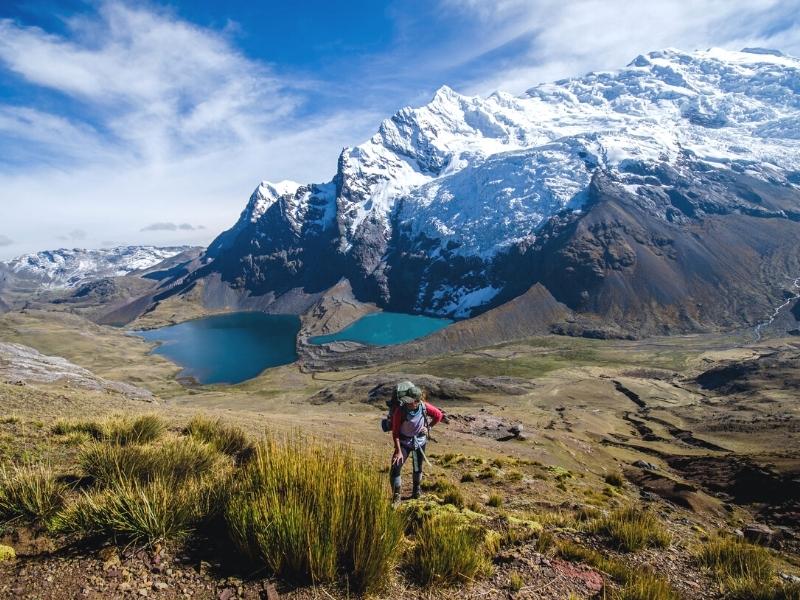
The Ausangate Trek is one of the hiking circuits, most incredible for the beauty of its landscapes, in this mountain adventure you will enjoy unique scenarios, such as lakes of different colors (blue, green, turquoise, red), the mythical mountain of rainbows and ancient Andean cultures, who are the true heirs of the Incas, many still celebrate their ancestral rites.